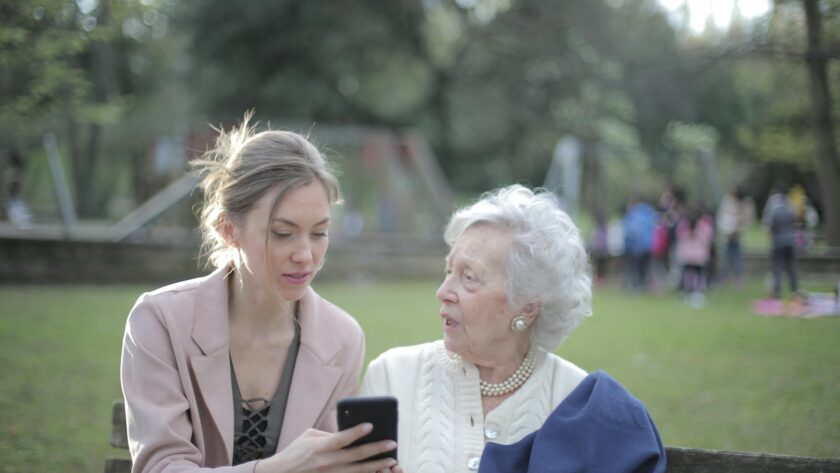Whether you’re looking at your aging parents and their changing needs, or you have an aunt or uncle who might not be as fit to live on their own, or you’re considering some other family member, still, the question of independence needs to be raised at some point. Perhaps they have had an accident, injury, or developing a medical condition that makes them much less able to take care of themselves, or perhaps you have simply noticed changes, bit by bit, in how they live that give you some reason for concern. Here, we’re going to look at how you can help them manage their independence, as well as the options for how you can provide them with help when they need it.
Get the doctor involved
Discussing your parents’ independence with their doctor is crucial yet sensitive. Approach it with empathy, recognizing their dignity and autonomy. Share observations of their abilities and any concerns about safety or self-care. Collaborate with the doctor to assess their physical and cognitive health, exploring options for support services or modifications to promote independence. Open communication fosters a holistic approach to their care, ensuring their needs are addressed while respecting their wishes. Together, you can devise a plan that maintains their quality of life while addressing any challenges, empowering them to live as independently and comfortably as possible for as long as feasible.
Do what you can to improve their independence
There are many ways that you can help your loved one maintain their independence for longer. For instance, by encouraging them to eat more healthily and to stay active, they are a lot more likely to stay physically fit for longer. You should also ensure that they are fulfilling their social needs and their needs for mental stimulation, whether it’s by visiting them yourself, or by helping them find community events and groups that they can get involved with. No matter what stage of their life, there’s usually something that can be done to help them live a more vital and well-rounded life.
Adapting the home to their needs
One of the ways that your loved ones might be able to accommodate their needs better is to make sure that their home becomes more livable and safe for them. There is a wide range of home safety modifications that can be made to improve safety in a range of ways. If they need to start using a wheelchair, ramps can be installed to help them in and out of the home. Railings can be added to places like the bathroom to reduce the risk of slips, trips, and falls. Stairlifts could help them make their way through the home more safely. Research your options to see which might best suit their needs.

Bring a carer into the home
Aside from the changes and services you can rely on to help improve their ability to remain independent, you may want to talk to your parent (or older loved one) about the need for someone to help out every now and then. Home care can come in a variety of different forms, from someone who is there to see to their needs throughout the majority of the day, to those who provide respite care, stepping in only occasionally to offer care when you or their loved ones might not be there. There are home care services to help with specific needs, too, from disability care to dementia care, so be sure to research which type is most likely to suit your parents’ needs.
Finding the right place for them
If aging in place doesn’t seem like the right fit for your parents, and you want to make sure that they have the care that they need, as well as surroundings that are safer and better suited to them, then you may want to look at moving them into a place that provides that. Aside from ensuring their safety, the right choice of retirement home can offer your loved one community, as well, surrounding them with people they can forge new connections with, activities to pass their time fruitfully, and access to things like therapy and care that can genuinely improve their quality of life. Care has to be taken to choose the right facility, but your loved one could thrive in such a place, given the chance.
Caring for them yourself
Caring for an aging parent personally is a journey of compassion and dedication. It involves a delicate balance of meeting their physical needs while nurturing their emotional well-being. Providing companionship, assisting with daily tasks, and ensuring medical care are all part of the role. Patience becomes your ally as you navigate the challenges that come with your changing abilities and health. It’s a commitment that requires sacrifice, yet yields profound moments of connection and love. It is important to note how personally challenging it can be to become a full-time carer, and it’s always worth looking for tips and advice from those who have been in your shoes so that you avoid making some common mistakes

What if they are not cooperative?
Unfortunately, it is not entirely uncommon that an older loved one might be unwilling to take your help when you offer it. A lot of people can worry about becoming a burden on others, some have difficulty setting pride aside, and others might even think that they are being sidelined in their own lives. The best way you can handle it is to try to approach your loved one as an ally, offering to help them look at the options, rather than trying to foist your chosen solution on them. Furthermore, you should be honest about your worries, and how much risks of living along might cause you some genuine stress, as it could help them see things from your perspective.
Frank conversations, with your loved one, as well as their doctor, need to be had to better ensure that you’re able to take the appropriate steps to help them. The tips above can help, but you have to be sure that your loved one is involved in the conversation, too.



